News
-
 Health & Medicine
Health & MedicineEarly malnutrition may impair infants’ mix of gut microbes
Babies’ gut microbiomes fail to fully recover even after fending off bouts with malnutrition.
By Nathan Seppa -
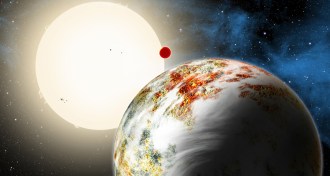 Astronomy
AstronomyRocky, overweight planet shakes up theories
Kepler-10c is a rocky exoplanet 17 times as massive as Earth, and astronomers are puzzled as to how it formed.
-
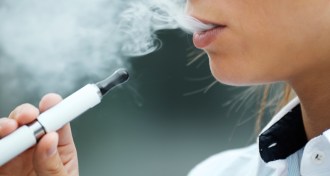 Health & Medicine
Health & MedicineHealth risks of e-cigarettes emerge
Research uncovers a growing list of chemicals that end up in an e-cigarette user’s lungs, and one study finds that an e-cigarette’s vapors can increase the virulence of antibiotic-resistant bacteria.
By Janet Raloff -
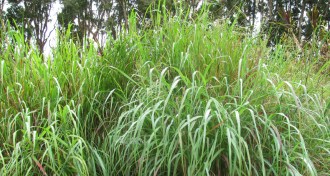 Chemistry
ChemistryBacteria take plants to biofuel in one step
Engineered bacterium singlehandedly dismantles tough switchgrass molecules, making sugars that it ferments to make ethanol.
By Beth Mole -
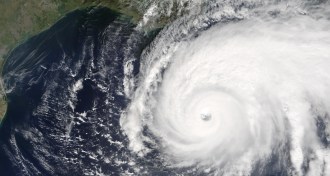 Psychology
PsychologyStereotypes might make ‘female’ hurricanes deadlier
Precautions may get shelved by those in the path of severe storms with feminine names, leading some to suggest that storms should be named after animals.
By Bruce Bower -
 Health & Medicine
Health & MedicineBrain’s support cells play role in hunger
Once considered just helpers for neurons, astrocytes sense the hormone leptin and can change mice’s appetites.
-
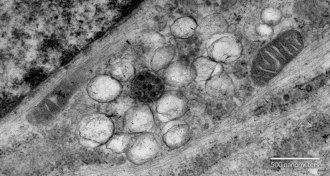 Life
LifeDrug candidate takes new aim at MERS
An experimental drug that shuts down construction of virus-making factories could become a new weapon against MERS.
By Meghan Rosen -
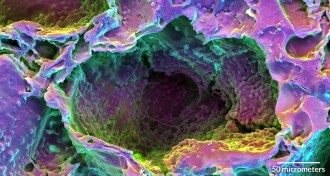 Tech
TechLasers heal damaged rodent teeth
Handheld laser spurs stem cells into action, regrowing dentin in drilled teeth.
By Meghan Rosen -
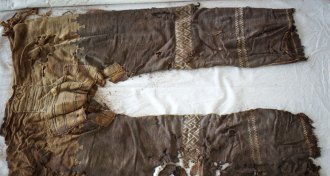 Archaeology
ArchaeologyFirst pants worn by horse riders 3,000 years ago
A new study indicates horse-riding Asians wove and wore wool trousers by around 3,000 years ago.
By Bruce Bower -
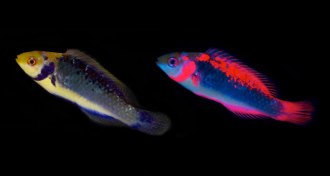 Animals
AnimalsReef fish get riled when intruders glow red
A male fairy wrasse gets feisty when he can see a rival’s colorful fluorescent patches.
By Susan Milius -
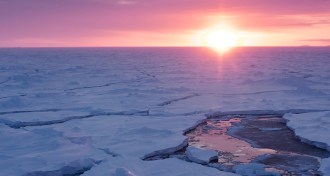 Climate
ClimateViolent storms may shatter sea ice
Tall waves’ effect on sea ice hints at troubled water in the future.
By Beth Mole -
 Particle Physics
Particle PhysicsProton’s magnetic properties pinned down
A precise measurement of a proton’s magnetic properties could help reveal subtle differences between matter and antimatter.
By Andrew Grant